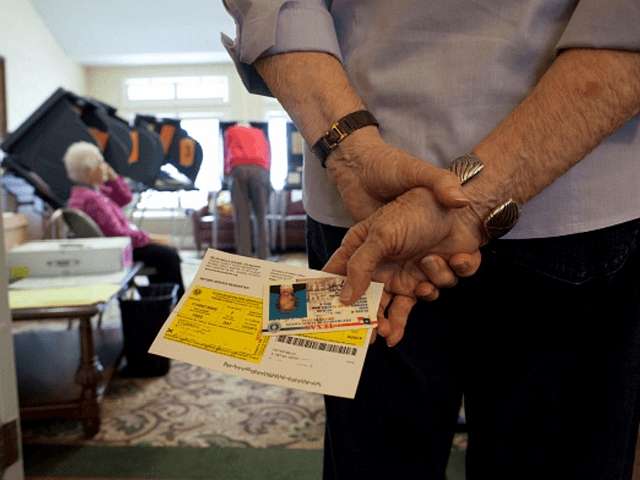Texas Governor Greg Abbott signed into law Friday a bill which cracks down on mail-in ballot voter fraud.
“It is a primary function of government to protect a citizen’s right to vote, and I will not allow the integrity of the ballot box to be compromised in Texas,” said Abbott in a prepared statement. “As Attorney General, I prosecuted countless cases of mail-in ballot fraud, and yet this problem continues to persist.”
He thanked lawmakers for strengthening penalties against “those who commit mail-in ballot fraud.”
Senate Bill 5, one of Abbott’s 20 special session high priority items, seeks to protect individuals who vote by mail, largely, the elderly and the disabled. The call for such legislation followed widespread reports of absentee ballot fraud targeting elderly residents in hotly contested Dallas County Democrat races in May.
Under SB 5, penalties graduate for repeat offenders from misdemeanor to felony status. The latter carries a sentence of two to 10 years in prison and up to a $10,000 fine. The law prohibits the use of an electronic signature and requires signature verification for absentee ballots. Rejected mail-in ballots suspected of fraud must be reported promptly to the state Attorney General.
On Thursday, the House voted 92-39, passing the bill along party lines. Generally, Democrat lawmakers opposed SB 5, asserting it focused too heavily on punitive solutions and not enough on proactive measures to prevent mail-in ballot voter fraud. Some said they needed more time to draft better legislation. Others, like Senator Royce West (D-Dallas), argued against the bill because they believed a section criminalized certain political discussions among family members when one of them possessed a mail-in ballot. The Austin American-Statesman reported that SB 5 House sponsor Craig Goldman (R-Fort Worth) called that premise “unrealistic,” saying he did not think family members would turn in aunts, uncles, parents, or siblings for “sitting around the kitchen table and a ballot happens to be there, and they talk about how they are going to vote.”
The bill returned to the Senate with an amendment by Goldman that repealed House Bill 658, which became law during the regular legislative session. It permitted the collection of absentee ballots at the state’s nursing homes. Goldman called it an “unfunded mandate” and said county clerks since complained that HB 658 was extremely costly for them to enforce, according to The Dallas Morning News. The Senate accepted the House changes.
“When a citizen’s vote is stolen, their identity, ideas, and beliefs — which only they have the right to express through their vote — have been stolen as well,” said the bill’s author Senator Kelly Hancock (R-North Richland Hills) commented. “Sadly we’ve seen criminals make mail ballots a prime target for illegal voting and election fraud, as evidenced by ongoing investigations in multiple Texas counties.”
The Public Interest Legal Foundation, an election integrity-focused nonprofit, continued to sound off on its social media accounts regarding the new law, arguing that Texas needs to follow Kansas’ model of building more voter identification requirements into the mail balloting system. Kansas requires that citizens provide items like a driver’s license number or other similar forms to help verify the identity of the voter in question.
Thank you @GregAbbott_TX for signing #SB5. Stronger penalties are good but we need better #VoterID mechanisms in mail balloting next See #KS
— PublicInterestLegal (@PILFoundation) August 14, 2017
In Dallas County, election officials sequestered 700 suspicious looking absentee ballots, pushing pause on the May results to sort out the situation. Then, audio emerged suggesting a voter harvesting scheme reached all the way into the county’s elections office. Dallas County District Attorney Faith Johnson launched a criminal investigation and asked the Texas Attorney General’s office for support. Breitbart Texas reported that, in early June, authorities issued an arrest warrant for suspect Miguel Hernandez, accused of forging the signature of at least one elderly voter on a mail-in ballot. However, Hernandez went missing. A month later, a grand jury indicted him in absentia on one charge of illegal voting, a second degree felony. Shortly thereafter, police apprehended Hernandez.
Last year, the state opened an investigation in Tarrant County where reports of mail-in ballot harvesting and voter fraud erupted a month before the November 8 national election.
SB 5 goes into effect on September 1.
Follow Merrill Hope, a member of the original Breitbart Texas team, on Twitter.

COMMENTS
Please let us know if you're having issues with commenting.